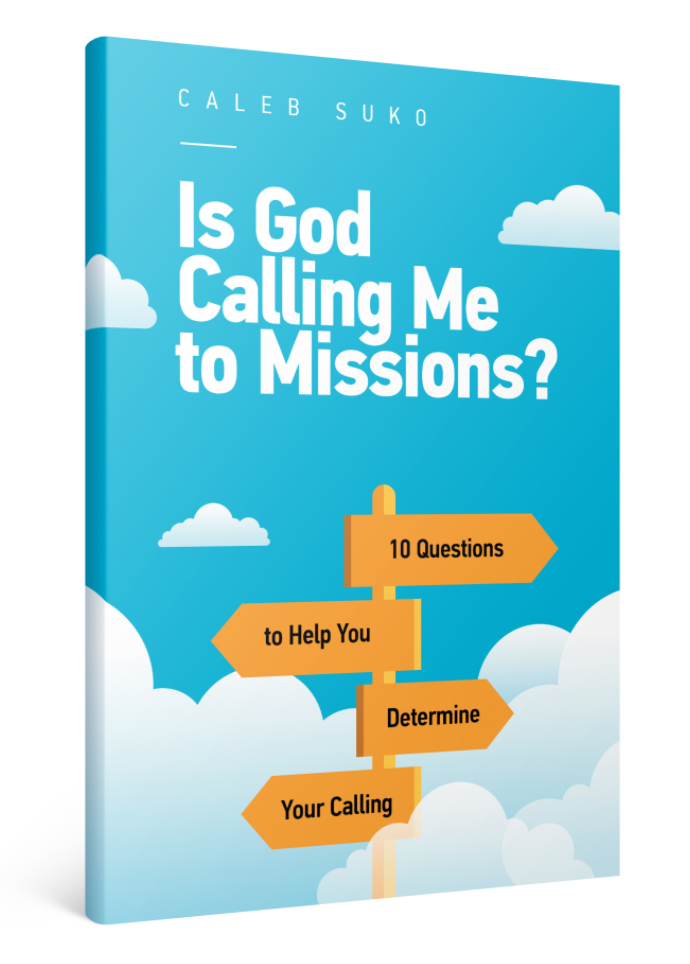Unfortunately, as you look around our world it is not hard to find people who are rich, famous, in places of power, and over all who seem to be enjoying the “good life” yet they are also evil and have no fear of God. They say what they want and they do what they want. They seem to live on their own terms. Not only do their lives go against God and his Word but often they threaten the lives of those who are poor, who are in difficult circumstances and yet who honor God.
Podcast: Play in new window | Download (Duration: 32:03 — 59.3MB) | Embed
This type of injustice can be found in any nation at any time. Evil men who are well off who do evil things to good people who are in difficult circumstances. We have seen this scenario many times throughout history. Evil and powerful people doing terrible things to poor and God fearing people.
Many of us may have experienced such situations in our personal lives as well. Maybe it was a bully at your school growing up. Maybe it was someone one at your work who threatened you, who made your life tough, who was out to get you no matter what. These are the real life situations that who often find ourselves in and they can cause us to ask questions.
“God why does it seem like the wicked prosper while we suffer?”
The other questions that we can ask is, “How should I react when the wicked are threaten me and I have no means to stop them”
Today we are looking at Psalm 37 where we find that David often dealt with these same questions. This theme comes up often in the book of Psalms, we can also see it clearly in Psalm 10 and Psalm 73. I recommend that you read through those psalms later.
Introduction to Psalm 37
We tend to think of Psalms as just being a hymn or a worship song. While this is true, many psalms also have the character of wisdom literature. Here we find a psalm that has a lot in common with the book of Proverbs. In fact it looks like Solomon quotes the first 2 verses of this psalm word for word in Proverbs 24:19-20. In this Psalm we find short and powerful statements of wisdom. We also see clear instructions for how we should view the world, how we should think about wicked people, and how we should react in these situations. The wisdom of the Proverbs can often be described as the skill of seeing the end at the beginning and in this Psalm this is exactly what we see.
If we were to sum up the message of this psalm we could say two things.
- The success of the wicked is temporary but
- The blessing of the righteous in permanent
It’s application is thus:
- Don’t worry about wicked people
- Trust in the Lord
This is a very simple way to look at it but sometimes that can be helpful for us as we take a step back and look at our own lives in contrast to the lives of the wicked.
As we go through this text today I want to focus on 10 ways in which the righteous should react to the success and the threat of the wicked.
What you shouldn’t do!
The first two imperatives are negative, this is because generally as humans we react negatively to the success of the wicked. Before we can step in faith and walk the way God has planned for us we must first rid ourselves of these negative reactions.
Do not worry about wicked people (v1)
Psalm 37:1-2 NIV – 1 Of David. Do not fret because of those who are evil or be envious of those who do wrong; 2 for like the grass they will soon wither, like green plants they will soon die away.
I want you to notice how clear, how strong, and how straightforward David is here. He leaves no room for doubt. We are stopped in our tracks and told to stop. Also note that this is an unusual beginning for a psalm. Most psalms begin by addressing God, “Praise the Lord.” Thus, from the first line of this Psalm we can see that it has a unique nature. This is a Psalm that is more addressed to the individual, to you and me. So we better pay attention. This first line is an imperative for you and for me!
What does it mean to fret? The Hebrew word here literally means “to burn” or “to glow” and it is often used to describe anger, especially God’s anger against the wicked. However, in the context of this psalm and also in the proverbs we see it being used more to describe someone who is getting worked up because of the evil deeds of another.
It may include an aspect of fear, anger, anxiety, and frustration. The idea is that this wicked person is getting us worked up and hot in mind and in our spirit. We have no peace because of what they are doing. We can not relax our mind and we can not calm ourselves down. Yet, at the same time there is really nothing in our power that we can do to stop that person.
I have to tell you that these feelings have crossed the surface of my heart as I thought about the conflict between Ukraine and Russia. “Why Putin, are you causing us such stress?” Yet, there is nothing I can do to change the situation.
Do you have any situations in your life where you are preoccupied with frustrated thoughts, worries, anger, fear over something someone else is doing? If so then you need to take a step back and you need to put down your fretting and change your focus. A little later we will look at how we should change our focus.
Do not be envious of evil people (v1)
There is a second common reaction when we see evil people living wickedly and that is that sometimes it looks enticing to us. They seem to be enjoying life to the fullest. They have the all the money, all the sex, all the entertainment, and all the power. Those can be very tempting. If we are not careful we can start to quietly envy their lives. We can start to think, “if only I had one tenth of what he or she has.” These are dangerous thoughts and powerful temptations that we must recognize and we must put a stop to!
Envy and jealousy are terrible poisons for our soul. Just a few verses later David tells us:
…do not fret—it leads only to evil. Psalm 37:8
Envy produces within us other terrible things like discontentment, frustration, anger, and can even lead to violence and murder. Envy led Cain to murder his brother, envy motivated Joseph’s brothers to throw him in a pit and then sell him. We must be careful not to allow envy’s poison to enter our hearts, it will slowly poison our minds and lead us to places we thought we would never go. Envy will rob us of our joy and exchange it for bitterness and discontentment.
What we need in order to avoid the fretting and especially the envy is a little of God’s perspective. This is what we get in verse two.
“For like grass they will soon wither, like green plants they will soon die away.” Psalm 37:2
This is why eternal perspective is so vital for us. It puts the end and the beginning together. When we look at the wicked, we see only the pleasures they are enjoying now. We can not see their end yet. God’s Word helps us to foresee their future. Their wealth will end, their power will end, their entertainment will end. Every good thing that the wicked has is a temporary thing and it will sooner or later be taken from them.
Here are a few reasons why we should not envy the lifestyles of the wicked.
- Luxury doesn’t equal happiness
- They’re not as happy as they look
- All their good things are temporary
- Envy is destructive to your own soul
- Goodness that comes from God is forever
Trust in the LORD (v3)
Psalm 37:3 NIV – 3 Trust in the LORD and do good; dwell in the land and enjoy safe pasture.
David doesn’t spend a lot of time on the negative imperatives. He quickly directs our attention to the positive things we need to be doing. We can find at least seven positive commands in the psalm. What that tells me is that for those who have faith in God, we are so busy looking to Him, trusting Him, serving Him, praising Him, enjoying His goodness, that we hardly have time to be worried about the wicked or to envy their lifestyle.
Truly, the righteous man will not envy the wicked because he has experienced and is experiencing God’s continual overflowing blessings of grace, mercy, love, and forgiveness in his life! This all starts at one simple point in our lives. TRUST. Yes, we say it a lot and maybe sometimes it sounds like we are overdoing it but we are not. Trust, is what God’s Word comes back to again and again.
When the wicked seem to succeed, when they threaten our lives, when they have all the power, all the money, and all the fun, God wants us to trust him fully, faithfully, and freely! Friends please don’t ignore this simple and vital truth. Trusting God isn’t simply a theoretical, theological idea that is thrown around to make us sound spiritual. Trusting God has real life application!
We can see three aspects to how our trust in God should be worked out in daily life there.
- Do good: True trust in God always results in obedience to His commands
- Dwell in the land: This is speaking of living within the god-given boundaries for your life. The Israelites were told to dwell in the land that God promised them. However, they didn’t get that land without a fight. For some of them this was too much, they would rather live outside of God’s promises than fight for them. God has given each of us boundaries for life. He has told us how we should and shouldn’t live, yet the life of obedience and righteousness doesn’t come without a fight. If you’re going to dwell within your god-given boundaries then you’d better be ready to fight for them. This also is an act of trust!
- Enjoy safe pasture: This is the promise God gives us. When I trust God, when I choose obedience, when I fight to live within my god-given boundaries, then I can have all the confidence in the world, knowing God is with me, God is for me, and God will give me safety!
Take delight in the LORD (v4)
Psalm 37:4 NIV – 4 Take delight in the LORD, and he will give you the desires of your heart.
Now we come to a verse that it seems everyone loves to quote. Wow, we get delight and we get the desires of our heart all in one verse. Certainly, there is truth here, a very encouraging and hopeful truth. Yet, let us be careful not to look at this verse apart from its context. You see, our delights and our desires need to be seen within the context of trust and obedience (verse 3) and on the other side, commitment (verse 4).
So we can’t just take this verse and start clapping our hands in delight and tell God that the desire of our heart is to have a million dollars! No, it doesn’t work that way! We must first bring our hearts, our minds and our life in line with God’s Word! We must trust God in everything, we must not envy the wicked, we must learn to fight to live within God’s will. It is then that God begins to work within us to create new, godly desires and these desires he will always fulfill.
What does it mean to delight in the Lord? “To be soft or pliable… or luxurious” (Strongs)
It conveys the idea of putting on a soft garment that feels luxurious and pleasant to the skin. This is in fact a good illustration because when we delight in the LORD it is truly like putting on a garment that covers us wholly, makes us feel comfortable, and yet also provides protection from the elements.
Yet in our world there will always be false delights and true delights. We can easily be deceived to think that the lifestyle of the wicked is a delight. Yes, there are the temporary pleasures of sin, the temporary excitement from doing what makes us “feel good” but is this really delight? It is a false delight, it is like a sour candy with a sugary layer on the outside. That sugar will disappear fast and then you will just be left with sour!
So how do we change our delight? By changing our focus, our faith, and feet!
- Focus: We just choose to look to God, to learn about him, and to praise him
- Faith: We must trust that his way will lead us away from death and toward life
- Feet: We must begin to act upon God’s commands and do what is right no matter how difficult or what other people are doing or telling us to do.
Commit your way to the LORD (v5)
This brings us naturally to David’s next imperative for us. He calls us to commit our way to the Lord. We briefly discussed a similar verse in Psalm 31 last Sunday.
Psalm 31:5 NIV – 5 Into your hands I commit my spirit; deliver me, LORD, my faithful God.
Of course the idea of commiting involves a lot of trust. Trusting God is an important prerequisite to committing your way to Him. Nevertheless, the kind of commitment that we see here goes above and beyond generally trusting the LORD.
To commit is to intentionally make a decision to bring all your life under His authority, His protection, and His will. This is very important for us to do. When we do this we give ourselves confidence in God Himself. We give ourselves a foundation upon which we can build our lives.
There are a lot of similarities to marriage here. Why do we have wedding vows, why do we have a marriage ceremony, why do we have witnesses and make a big deal out of all these things. Because commitment matters! All the things we do when someone gets married adds value to the commitment, it makes it real and tangible, it tells us that this is something that should never change.
What about our commitment to God? Have you committed your life to God? In a way this is what we do when we are baptized. We show the world that we believe and we are committed to living for God. In difficult times, in times when we have questions this kind of commitment gives us stability and assurance.
Be still before the LORD (v7)
Psalm 37:7 NIV – 7 Be still before the LORD and wait patiently for him; do not fret when people succeed in their ways, when they carry out their wicked schemes.
Oh how we need stillness in today’s world of non-stop activity. We have learned to always have something turned on, some media, some audio, some video. Sometimes we gauge our life by the level of activity. We go here, we go there, we don’t have time to sit and be quiet any more. This is the curse of modern life, this is the curse of the city and of our habits.
One of the most common results of anxiety is constant movement of the body and the brain. Someone who is very anxious can’t stay still for long. They will pace the room. If they sit they will shake their leg or fiddle with their fingers? Why? Because there is a nagging feeling that they need to do something, they need to control the situation.
The practice of stillness puts us in a vulnerable position. It’s hard to be still when we feel there is a threat. To be still is to recognize God’s sovereignty and control in our lives. It is to realize that there are very few factors that we have any control or influence over and many many factors in our life that we have no control over. It is the calmness that comes when we put those uncontrollable factors in the hands of God!
Ultimately, the stillness that David is talking about here is primarily a stillness of mind and spirit. This is the peace of God that is uniquely available to all who have their faith securely resting in Jesus Christ.
John 14:27 NIV – 27 Peace I leave with you; my peace I give you. I do not give to you as the world gives. Do not let your hearts be troubled and do not be afraid.
Refrain from anger (v8)
Psalm 37:8 NIV – 8 Refrain from anger and turn from wrath; do not fret–it leads only to evil
Although there is such a thing as righteous anger, it seems that David is speaking of an anger that resembles personal revenge. We can also see this anger as part of the fretting that was mentioned in verse one, we see it here again in verse 8, “do not fret.” Remember that the word “fret” literally means “to glow.” Often it was a word used in combination with the word anger.
What David is saying is that we should not allow our emotions to carry us away in these situations. As Christians we must learn to recognize our emotions and to direct them properly. Last week I talked about David’s emotions and mentioned that emotions are not wrong in and of themselves. It’s what we do with them, how we react to them that makes the difference. We can do nothing and allow the emotions of anger, anxiety, frustration grow. They will eventually take hold of us, they will control us. Or we can recognize the emotion and began to direct our mind and our heart towards God.
To refrain is to put limitations on something. How do we put limitations on anger, wrath, and worry?
- By refusing to act upon them
- By bringing them to God
- By directing our mind to truths of Scripture
- By taking time for stillness before God
- By remembering what God has done for us in the past
Turn from evil and do good (v27)
Now here’s some simple advice that we can all use!
- Is it difficult? Do good!
- Is it stressful? Do good!
- Is it dangerous? Do good!
- Is it unclear? Do good!
- Is it painful? Do good!
Oh how we need the faith to do good in all circumstances. It may seem over simplified but this is really the key. Goodness, God’s goodness is what we really need. We need it not just as an idea but as an action in our lives. The Christian should always know what to do, he just needs to do the next good thing!
The word “good” is the Hebrew word “tov.” It is the same word used to describe God’s creation! “He said, ‘It is good’”
Here are a few other ways this word can be translated: pleasant, agreeable, excellent, rich, appropriate, becoming, glad, happy, prosperous, kind, right.
These adjectives should describe our actions and reactions in difficult times. So take some time to look around you. How can you begin to do good, to whom can you be pleasant, kind, glad…?
Hope in the LORD (v34)
Psalm 37:34 NIV – 34 Hope in the LORD and keep his way. He will exalt you to inherit the land; when the wicked are destroyed, you will see it.
As come towards the end of the psalm we see an exhortation to hope in the Lord. Where there is hope there is life, there is motivation, and there is progress. Without hope, all is lost. Our emotions can leave us hopeless at times and that is why it is so important to keep our hope in the LORD at the center of our souls.
Romans 8:23-25 NIV – 23 Not only so, but we ourselves, who have the firstfruits of the Spirit, groan inwardly as we wait eagerly for our adoption to sonship, the redemption of our bodies. 24 For in this hope we were saved. But hope that is seen is no hope at all. Who hopes for what they already have? 25 But if we hope for what we do not yet have, we wait for it patiently.
What does it mean to hope in the LORD?
- I am confident in his abilities
- I believe in his forgiveness
- I trust in his salvation
- I stand on his promises for this life and the future
- I look with eagerness towards eternity
Consider the blameless (v37)
Psalm 37:37 NIV – 37 Consider the blameless, observe the upright; a future awaits those who seek peace.
David started with calling us to change our focus, to no longer fret over the wicked or envy them. He then called us to turn our focus to God Himself and now he directs our focus back to a different group of people, “The blameless.” Who are the blameless? They are those who have put their trust in God and received forgiveness and now their lives are examples of His grace?
Why should we look at the blameless? Because their testimonies are powerful encouragements and reminders of God’s faithfulness.
How can we look at the blameless? We can read their stories in God’s Word. People like Joseph, Daniel, Ezekiel, Stefan, Paul and many others who blamelessly stood strong in their faith in difficult circumstances and God rewarded them. We can read their stories in history books. Those who were persecuted and martyred. And we can look to those who are living with us now.
Hebrews 12:1-2 NIV – 1 Therefore, since we are surrounded by such a great cloud of witnesses, let us throw off everything that hinders and the sin that so easily entangles. And let us run with perseverance the race marked out for us, 2 fixing our eyes on Jesus, the pioneer and perfecter of faith. For the joy set before him he endured the cross, scorning its shame, and sat down at the right hand of the throne of God.
Conclusion
No matter who we are, we will all face the problem of wicked people who do wicked things. Let us neither be discouraged or dismayed. Instead, let us put our trust confidently in the LORD. Let us remember his goodness and let us go about doing good things!
Psalm 37:39-40 NIV – 39 The salvation of the righteous comes from the LORD; he is their stronghold in time of trouble. 40 The LORD helps them and delivers them; he delivers them from the wicked and saves them, because they take refuge in him.
Podcast: Play in new window | Download (Duration: 32:03 — 59.3MB) | Embed










